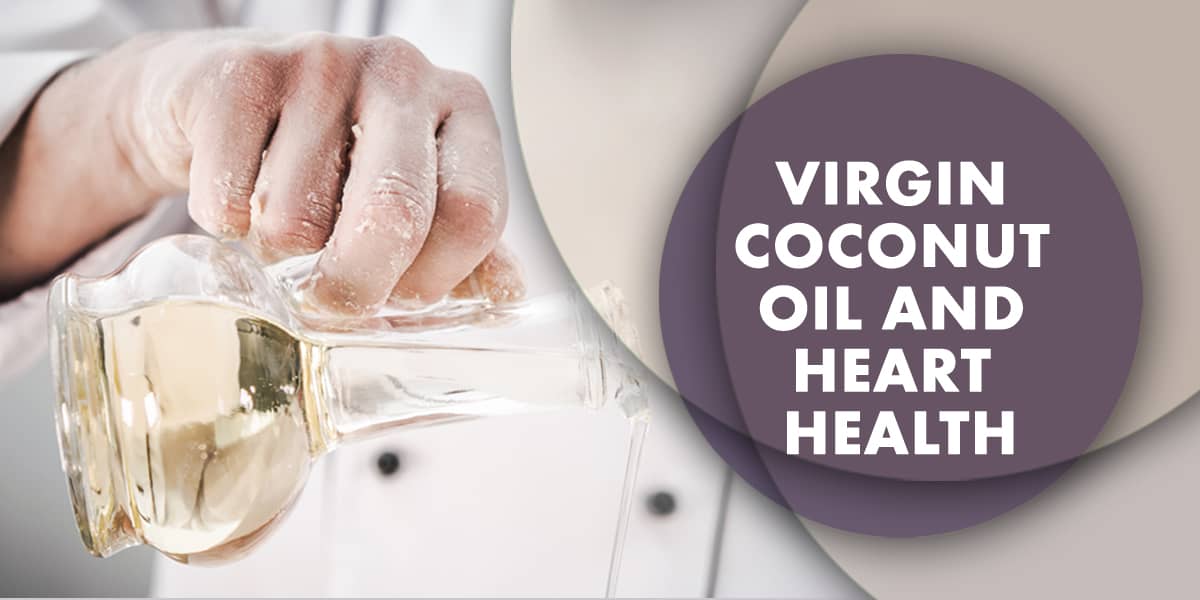Taking 5 ml of virgin coconut oil daily on an empty stomach can help elevate HDL cholesterol levels.
Many years ago, my professor Dr. Kshirasagar told me about this secret remedy for heart health. And now modern research is backing up these ancient claims. In the last decade, I have advised hundreds of patients to use 5 ml of Virgin coconut oil on an empty stomach and they all found it helpful.
But the thing with such home remedies is many patients start them without proper consultation and knowledge of the right dosage. Many over-enthusiastic patients take it in more quantities than prescribed, which can result in high cholesterol. And this is the reason why some experts suggest against taking these home remedies. When taken in the right amount and right way, it works as a medicine; and when taken in the wrong way it can be poison too!
Virgin coconut oil
Virgin coconut oil is 100% natural coconut oil derived from the Kernels of fresh coconut. It is not processed or subjected to heat or chemicals and has a strong smell and flavor. Since coconut oil is widely used in India, which is associated with several health risks, switching to virgin coconut oil can be a smart choice.
Virgin coconut oil has more health benefits and it does not contain hydrogenated oils that may be harmful to health. It is rich in middle-chain fatty acids which are easy to break and digest. Also, since it is produced without using heat or chemicals, it stands to be a better alternative to coconut oil.
Virgin Coconut Oil for Heart Health – Research Quotes
A study examined the effect of daily virgin coconut oil consumption on HDL and LDL. The participants were healthy individuals aged between 18-25 years. They consumed 15 ml of virgin coconut oil twice daily for 8 weeks and skipped it for the next 8 weeks. Again, they continued taking the oil for the next 8 weeks. Their plasma lipoproteins levels were measured at weeks 8, 16, and 24.
The reports revealed that daily intake of virgin coconut oil showed a significant increase in HDL (high-density lipoprotein cholesterol), which is good cholesterol. There was no change in low-density lipoprotein cholesterol (LDL). This could be explained by the high proportion of lauric acid and myristic acid in virgin coconut oil.
The study further reported that a few participants reported mild diarrhea or loose stool, mild stomach ache, and vomiting. But these effects were reported during the first week and they got settled naturally during the second week.
Thus, the study concluded that up to 30 ml of virgin coconut oil consumed by healthy adults showed significant improvement in HDL. It caused no side effects when consumed for 8 weeks.
Virgin Coconut Oil for Heart Health – Studies
However, there are multiple claims about the use of virgin coconut oil for heart health but unfortunately, most of them are not supported by robust research or evidence. A few published studies reported that consuming coconut oil can significantly increase total cholesterol levels. This was in comparison to the effects of safflower oil, soybean oil, palm oil, corn oil, and olive oil.
A few other studies have affirmed that virgin coconut oil intake is associated with increased HDL. And high-density lipoprotein cholesterol is inversely associated with a lower risk of CVD and cardiovascular mortality.
Another research revealed that VCO is more effective in lowering lipid levels than plain coconut oil. It resulted in reduced total cholesterol, triglycerides, and LDL. While showing a significant increase in HDL cholesterol. This property of virgin coconut oil was attributed to the biologically active polyphenol components present.
Yet another study reported that dietary intake of coconut oil is positively associated with total cholesterol and HDL-C levels among premenopausal women.
Saturated Fatty Acids and Heart Health – Risks
Research has shown that the consumption of saturated fatty acids can increase the risk of cardiovascular diseases. Though virgin coconut oil is rising in popularity due to its unmatched benefits and high polyphenol content. However, it is important to remember that virgin coconut oil is rich in saturated fatty acids like lauric acid and medium-chain fatty acids.
Thus, consumption of virgin coconut oil in excess can increase the risk of several secondary diseases including insulin resistance, glucose intolerance, and a high risk of cardiovascular diseases. Though there are benefits of including virgin coconut oil in the diet, the risks must also be thoroughly assessed. That’s why it is important for people, especially patients with pre-existing conditions to consult their doctor before starting virgin coconut oil. The dosage and limits should be followed religiously.
How to use virgin coconut oil in your diet?
- Drink 5 ml of virgin coconut oil on an empty stomach every morning.
- Use it for dressing your salads and fruit plates.
- Add it to your smoothies for a richer taste.
- You can also sauté your veggies in virgin coconut oil.
Your Takeaway!
There are no two thoughts that virgin coconut oil is a healthy choice. But it is important to choose pure virgin coconut oil and use it in the right way. You can identify it by its smell and flavor. If you are a healthy person aged 20-40, then 5 ml of virgin coconut oil every morning can help you keep your heart healthy. But people with pre-existing conditions must consult their doctor before starting it.


6 comments
Every post is enriching our lives many thanks 🙂
thank you
Thank you dear Doctor sir. As always very informative blog. I shall try from tomorrow. Thanks again
thank you
[…] addition to this, olive oil also helps in boosting anti-inflammatory and antioxidant functions. Coconut oil can also help improve your heart health. Though coconut is high in saturated fat content, it […]
[…] Virgin Coconut Oil and Heart Health […]